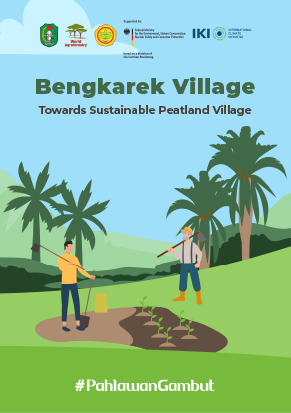This thesis compared methods that assess deforestation before and after the start of REDD+, in- and outside REDD+ initiatives, and across different scales. These assessments require (spatial) data on forest area and changes therein, but these data contain uncertainties which influence the REDD+ evaluation results. These uncertainties need to be accounted for in REDD+ assessments. The causes of deforestation differ across and within the different study sites, thus calling for locally tailored approaches when designing REDD+ interventions. Apart from the outcomes of these interventions on forest change, well-being outcomes need to be addressed and assessed too in order not to harm forest-dependent livelihoods.
Download:
DOI:
https://doi.org/10.18174/507034Skor altmetrik:
Jumlah Kutipan Dimensi:
Tahun publikasi
2020
Penulis
Bahasa
English
Kata kunci
climate change, mitigation, tropical forests, deforestation



















